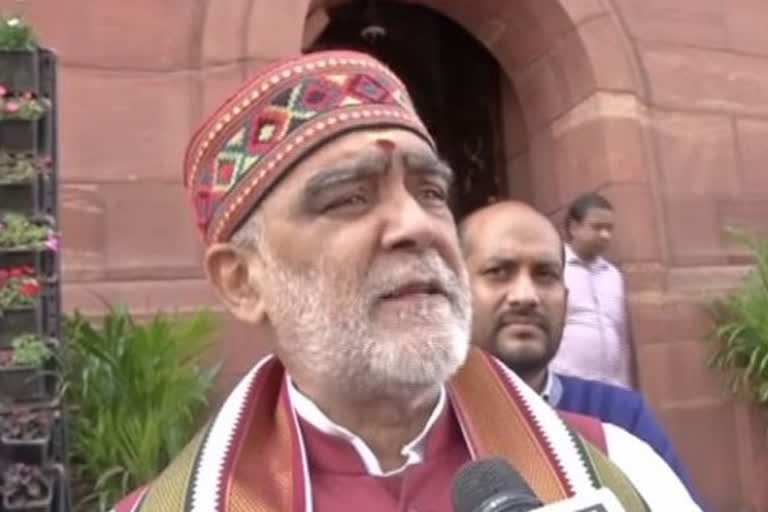New Delhi: Trees will be planted in Haryana and Madhya Pradesh to compensate for the diversion of 130.75 sq km of forest area in the Great Nicobar Island for a development project, the government has told Rajya Sabha. "The central government vide letter dated October 27 has accorded in -principle/stage-1 approval for the diversion of 130.75 sq km forest land for sustainable development in Great Nicobar Island. The project is of significant strategic and national importance," Minister of State for Environment Ashwini Kumar Choubey told the Upper House.
"In this regard, the state governments of Haryana and Madhya Pradesh have conveyed their consent for undertaking compensatory afforestation in their respective states," he said in response to questions asked by Trinamool Congress MP Jawhar Sircar. Since the scope of plantation in Andaman and Nicobar Islands is very limited, the compensatory afforestation in the arid landscape and in the vicinity of the urban areas would provide greater ecological value, Choubey said.
The strategically-crucial, multi-component mega project involves development of an international container trans-shipment terminal; a gas and solar-based power plant, an airport and a township. According to the environment ministry, the project has the potential to generate around 1,28,558 jobs. Choubey said the area proposed for development is approximately 1.5 per cent of the total area of Andaman and Nicobar Islands. Adequate mitigation measures have been proposed to compensate for the impact of the development on flora and fauna, he said.
The minister said more than 50 per cent (65.99 sq km) of the area proposed for diversion is for green development which means no tree felling is envisaged there. Keeping in view the importance of the projects and unavoidable requirement of forest land, the diversion of large patches of forest has been allowed in the past as well, he said.
According to the Forest Survey of India, Haryana has a forest cover of 3.63 per cent (of total geographical area). Andaman and Nicobar Islands have a forest cover of around 82 per cent. According to the guidelines issued under the Forest Conservation Act, compensatory afforestation is to be raised on suitable non-forest land, equivalent to the area proposed for diversion, at the cost of the user agency.
Compensatory afforestation can also be raised on degraded land, twice in extent of the forest area diverted, in case of the projects implemented by the central government or public sector undertakings. In May 2019, the ministry had issued revised guidelines stating that states and Union Territories with more than 75 per cent forest cover won't be required to provide non-forest land for forest diversion projects and compensatory afforestation may take place in other states deficient in forest land. (PTI)



